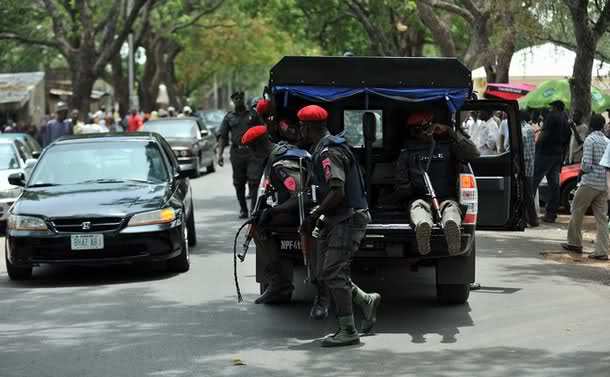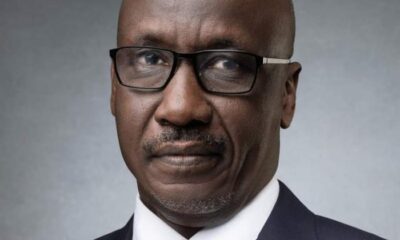Democracy & Governance
Securing Society for All, Not A Privileged Few -By Rufus Kayode Oteniya


Sometime in 2010, Nichi Vendola cried out loud to report a group of unruly teeangers who were consistently coming to harass him in his house in Bari. The youngsters would sometimes ring his bell or buzz at his front door and then belted out some homophobic chants before disappearing into the thin air.
Nichi, who is gay, wasn’t at this time just an ordinary citizen, he was the president of Apulia region, where Bari is the capital city. He was in office from 2005 to 2015 and was the first openly homosexual man to be so elected to such a high profile political office in the predominantly Catholic country. Not only was he just the regional president, he was also a highly regarded and influential politician who was often cited as a possible successor to the enigmatic Silvio Berlusconi, the Italian prime minister at the time.
Regions are to Italy what states are to Nigeria, and the president of a region is equivalent of a State governor. The country is made up of 20 regions. Apulia (Puglia in Italian) is a region in the southern part of the country bordering the Adriatic Sea. With a population of over four million people, the region is more populated than at least two-third of Nigeria’s 36 states and has an economy that is bigger than all but that of Lagos State.
This unsavoury episode involving Nichi Vendola shows the ordinariness of a political office or its perception, as well as the simple lifestyle politicians live in some countries with established democracies. The ordinariness is not limited to security and the treatment of people in government, it extends to their emoluments and retirement benefits, which are discussions for another day.
Nichi was paid a governor’s salary and expectedly with that, he was living in his own house, driving his own car to work (the official car was only for work assignments, and not a 24-hour dedicated vehicle; for even a governor), feeding himself, enjoying equal treatment and services as everyone else in his region.
Also, because of his exceptional situation as a man who was projected to national limelight as an astute anti-mafia campaigner, which he remained after he was elected as a parliamentarian – from 1992 till he became a governor in 2005, Nichi, unlike other governors in Italy, on request, had police or extra State security protection, which was limited to the outside of his house. It was his responsibility to make a private arrangement for protection within in his house, if the need arose.
The Italian State Police is an internal security apparatus that principally provides protection for the society as a whole, thereby ensuring that everyone is safe and secure with no special focus on particular citizens, except a handful of public and private citizens who could be susceptible to attacks from the ruthless mafia.
After the elimination of 107,000 ghost officers in a 2010 staff audit and the subsequent recruitment of new ones, the Nigeria Police Force (NPF) claims to have a staff strength of 371,800 that could normally and fairly so, provide reasonable security service to keep the society safe but it is actually not doing so.
The strength in the number of the police force doesn’t necessarily translate to the efficiency of the force, rather it is the efficacy in the allocation of the officers.
Similar to the allocation of other public resources, police officers are deployed to cater for the security of mostly officeholders and their families, a few influential members of the society like prominent monarchs and preachers. In the most absurd way, some crooks, as a display of their influence and status, do buy police escort and protective services and sometimes use the same police officers to harass and intimidate other people.
Nigerian public servants, who are known to award themselves illegal ‘security votes’, are still the same people who use the security apparatus of the police to gratuitously protect themselves and their families, leaving one to wonder what they do with their security votes.
If the government had prioritised protecting the society as a whole, there wouldn’t have been any rationale for the parliamentarians and judges, just like their executive colleagues, to have round-the-clock orderlies and guarding police officers. Shamefully, many of the officers have been reduced to drivers, errand boys and girls, bag-carrying escorts and shoe-cleaning assistants.
While a good number of our police officers are attached to different individuals, many others are wastefully wallowing at different checkpoints extorting money from citizens and doing everything but securing the society, and little wonder why crimes are so rife and easy to perpetrate.
In contrast, in an established democracy, the police protects the society and everyone is expected to confidently move about freely within it regardless of the location and time, and this is more so as some countries are fast becoming 24-hour economies, where people need to go about their work, businesses, shopping and leisure at any time of the day or night.
Save for the US where on the basis on past episodes and the amount of arms in the society, political leaders in established democracies (which, of course, any nation aspiring to attain greatness must aspire to be) walk about freely just like other citizens with little or no visible police presence. From the Netherlands, where the Prime Minister rides a bicycle to office and without any convoy or guard to the UK, where the members of parliament mingle freely in public transports and spaces with the general public, the security of the society is never in doubt.
Sometimes, as a Nigerian, I feel a little bit of a combination of shame and embarrassment whenever I see an aide-de-camp (ADC) standing right behind a government official in an already secured and protected space. This used to be a standard practice in many countries but many of them stopped such practice generations ago. It is not on record if any ADC ever took a gunshot for his principal or “who ADC don help?”
Sweden is a country that was not particularly known for political violence, until 1986 when Palme Olof, its prime minister, was assassinated in a crime yet to be resolved while walking home from a cinema around midnight with his wife, and without any police escort or bodyguard. As grave as it was, the incident wasn’t strong enough to trigger the country to fortify security around its leaders, but rather they strengthened security around Stockholm, its capital, so that everyone was equally protected in the city. To them everybody’s life mattered and must be secure, regardless of their position in the society.
If Nigeria must progress, we must stop deploying our limited human and material resources to the benefit of only a few people but for all.
N.B: This article was written before the London terrorist attack on March 22, 2017.
Rufus Kayode Oteniya writes from the UK and can be reached through oteniyark@hotmail.com; Twitter: @oteniyark.



















